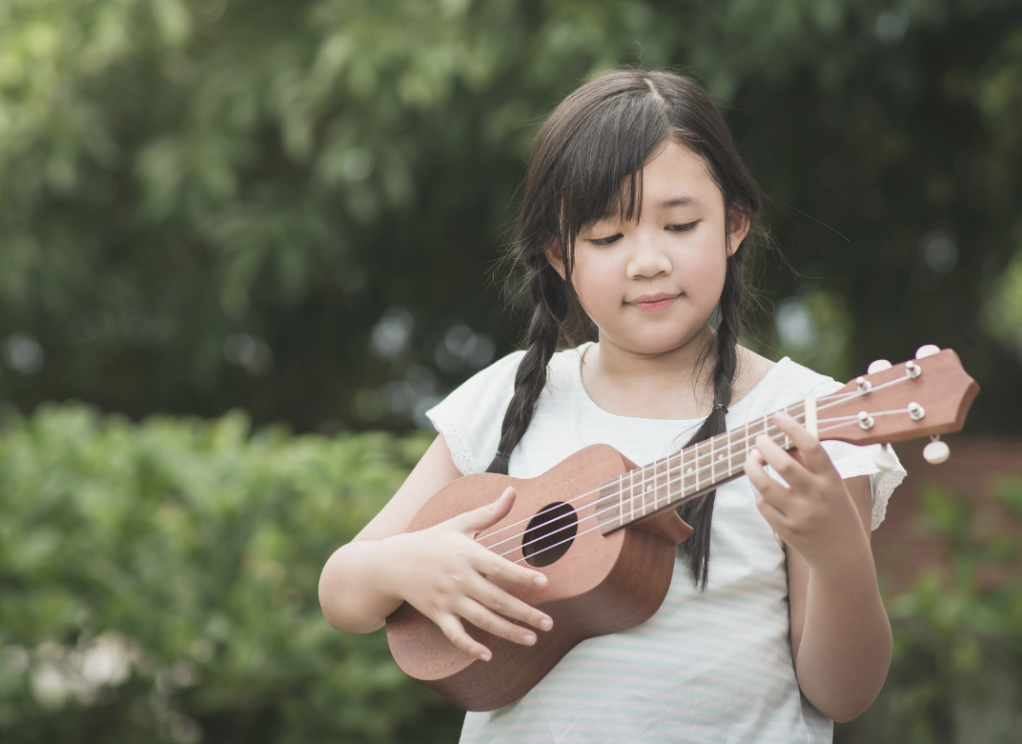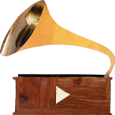How can I help to encourage my child’s interest in music?

The early years
Baby music classes are a fantastic way for parents to introduce their children to music. If you can find a good class near you, it’s a fun way to introduce singing and movement to your baby, as well as being a great opportunity for you to meet other parents.
Classes like these do pull on the purse strings though, so if you’re unable to justify the expense or can’t commit to classes on a long-term basis, attending just a half term of classes will be enough to watch a professional at work and perfect for you to learn the basics of what you could be doing yourself at home. Many first time parents doubt whether they’re doing the right things, so by going to a few classes, you will quickly build your confidence.
Sing, sing, sing
Singing is something that everybody can do with their children at home and even if you think you’re a terrible singer, you should never be embarrassed to give it a go. Your child will respond to your voice because they recognise it, regardless of how good or bad you sound! When they’re little you could start by singing traditional nursery rhymes (with your own made up words if you can’t remember them) and then as they get older you can start singing along to your favourite band, solo artists or their favourite film soundtracks. All are great ways to engage your child with music. Many recordings created especially for children will include fun effects and recognisable sounds, which they will quickly engage with.
If you’re singing and your child looks like they want to join in, encourage them to sing along with you. Encourage your child to copy lines of your chosen song back to you in parrot fashion (call and response) or alternatively, you could encourage them to sing along with you at the same time, in unison. Most children will pick up the melody of a song, first of all, so encourage your child to ‘la’ the song with you, until they’re at the stage where they can grasp the lyrics too. If a song doesn’t already have any actions, then a further way to engage your child with the song would be to create your own movements.
Listening to music
Playing music for your child to listen to is an invaluable way of encouraging their musical interest. There is a vast selection of music out there to listen to and the greater variety of music they are exposed to, the quicker they will find music they really love and identify with.
Playing music can be introduced to children from birth. In the early years, playing soothing music can relax your child or help them get to sleep. Although this technique works for many parents, be warned! Some children can be stimulated by all types of music, so you may find that silence is best for your little one at bedtime.
Music is an expressive art form and benefits the social development of children. As they get older, children will start to identify different feelings and emotions when they listen to music.
Once they develop an understanding of what they are hearing, you can make listening to music into a game. You can do this by asking your child questions about what they hear or you can encourage them to make up actions when they identify specific sounds.
Get moving!
When children are babies their instinctive reaction is to respond to music physically. Many will start by moving their arms and legs! As children grow up, they will respond by dancing. A great way to develop their musical interest is to actively encourage your child to dance when they hear the music. That way, your child will automatically associate music with an enjoyable activity and feel comfortable to express themselves and what they are hearing. Associating movement with music early on helps them understand the physical aspects involved if they decide to play a musical instrument later on.
It is common for a child’s physical inhibitions to increase as they advance developmentally (and become more aware of their aptitude), so it useful to get them used to express themselves physically before they start to become too self-conscious. That way it is already ingrained as part of who they are and has become second nature.
Let them be inspired
Whether or not your child appears to enjoy music, giving them a taster will definitely kick start their excitement for it. One of the best ways to do this is to go to a live performance. For a child, seeing the spectacle of watching a symphony orchestra, choir, rock band, or going to watch a musical, can have an enormous impact on them and give them a flavour of what being involved with music could be like.
Your child will also see the effect a group of people playing together has on an audience. I can still remember the first live performance I went to as a child and it’s one I’ll never forget. I will be quick to add that it’s important to choose your live performance carefully… I was taken to see an opera at four years old and although I loved every second, it was also utterly terrifying! Concerts can be pretty pricey, especially if you have to factor in the cost of travel as well, however free or subsidised events are often held for families throughout the year and they sometimes include outreach projects or specialist children’s workshops too.
One of the best aspects of music is that it is sociable! Children will often be misled seeing their peers performing solo at school. So it’s important to let them know that playing a musical instrument or singing brings opportunity to play in a band, an orchestra or sing in a choir or a theatre production. It’s no different to being part of a football team and they will love the social side of life that music can bring!














